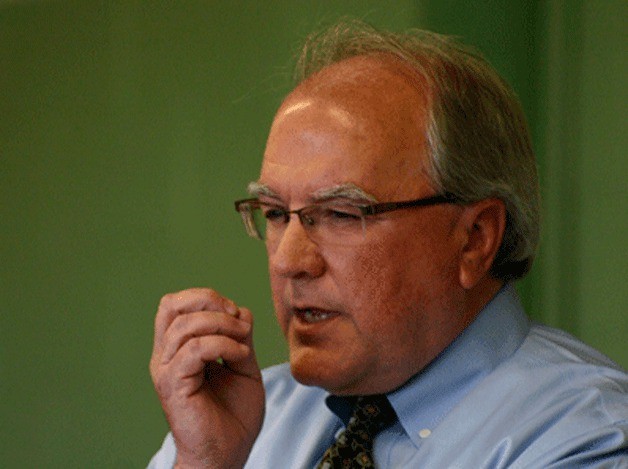The head of Washington State Ferries announced this week that he will step down in April.
David Moseley, the assistant secretary for the state Department of Transportation’s Ferries Division, made the announcement in his weekly email update on Tuesday, March 18.
“Recognizing that the ferry system is in a stronger position than when I came six years ago, I have decided to leave as head of the Washington State Ferries,” Moseley wrote. “I think it’s a good time to hand the future to the next director.
“It has been a profound privilege to serve the citizens of the state of Washington and the customers of Washington State Ferries for the last six years. I am deeply grateful for the opportunity to serve in what has been the most satisfying job of my career – and the hardest,” he added.
In his departure announcement, Moseley recounted the progress the state ferry system has made during his time at the helm.
When he came aboard six years ago, Moseley said he was joining “an agency in crisis” with rising fares, an aging fleet, declining numbers of passengers and unhappy customers.
Former Washington State Department of Transportation Secretary Paula Hammond had just pulled the 82-year-old Steel Electric-class ferries from service on the Port Townsend-Keystone route due to safety concerns, and a few years before, the state ferry system had lost its main funding subsidy from the state’s Motor Vehicle Excise Tax — a source of revenue that has never been replaced.
“We had old boats, had cut service and raised fares on our customers – no wonder they were mad at us!” Moseley recalled in his departure message.
Moseley said the turnaround for the ferry system began after it focused on four major priorities: new ferry boats, preserving the existing fleet, improving relationships with ferry communities and customers, and developing a sustainable, dedicated funding source for capital and operating needs.
“I believe we’ve made real, tangible progress on all of those priorities,” he said.
The Steel Electrics have been replaced with a new 64-car-capacity class of ferries, and three new ferries in the Olympic class are also funded and under construction.
Preservation and maintenance of existing vessels has improved, as has the agency’s outreach efforts with ferry travelers, he said.
Still, financial sustainability for state ferries remains elusive, Moseley said, and “remains WSF biggest challenge.”
He also gave much praise to his WSF fellow employees.
“It has been a pleasure to work with the women and men of the ferry system. They are hard-working, dedicated individuals who care deeply about the important service they provide to the citizens of our state and our customers,” he said.
Moseley’s last day will be April 15, and he said he has no concrete plans for what he’ll do next.
“I’m pleased with the progress we’ve made. But it is now time for the next person to build on our successes, correct our mistakes and continue to move the system forward,” he concluded. “As I leave this work to the next person, I am reminded of a Theodore Roosevelt quote, ‘More and more it seems to me that about the best thing in life is to have a piece of work worth doing and to do it well.’ There is absolutely no doubt that leading WSF is “a piece of work worth doing.” I am satisfied to leave the judgment of ‘how well’ I did to others. But one thing I know for sure – I did my best.



